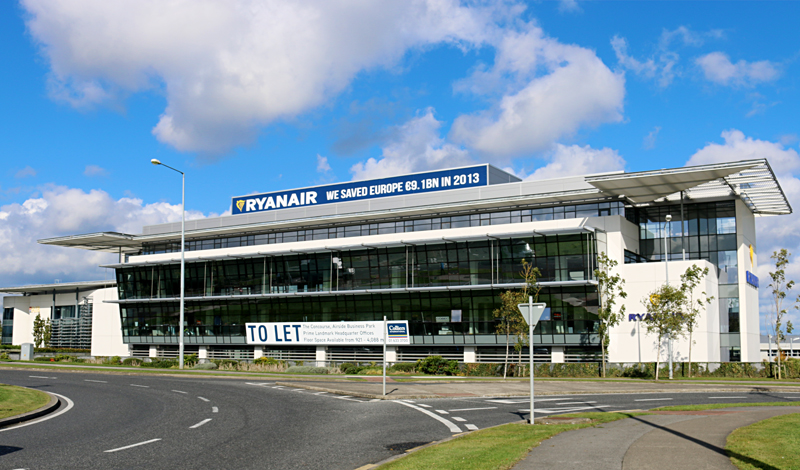R yanair confirmed earlier today through this press release that it will be forced to close its base in Oslo Rygge as of Saturday, October 29, 2016 and reduce its traffic in Norway by approximately 50 percent after the government of Norway confirmed the introduction of a new tax of 80 Norwegian kroner — or approximately $9.87 — to be paid by all airline passengers departing from any airport in Norway on both domestic and international flights.
Ryanair Forced to Cancel 16 Routes in Norway Due to New Tax
That 50 percent reduction in traffic translates to roughly 900,000 fewer passengers — and less traffic means a loss of approximately 1,000 jobs — due to the tax, which Ryanair calls “environmentally unfriendly” and predicts that it will “damage Norwegian tourism, traffic and jobs.”
Additionally, Ryanair will move four aircraft and jobs out of Norway to other bases operated by Ryanair; switch its London Stansted and Vilnius routes to Oslo Gardermoen — where it can avail of low cost airport agreements at Stansted and Vilnius; and switch the remaining eight Oslo Rygge routes to Oslo Torp, since “Oslo Rygge has advised it cannot sustain reduced operations.”
The 16 routes which have been cancelled include Beziers, Brussels, Chania, Dublin, Edinburgh, Malaga, Palma, Poznan, Pula, Riga, Rzescow, Sczecin, Talinn, Thessaloniki, Wroclaw and Zadar.
Ryanair Not the Only Entity Opposed to the New Tax in Norway
Airlines For Europe — of which Ryanair is a member airline — also strongly condemns the airport passenger tax being imposed in Norway, claiming that Norway risks losing greater than a million passengers combined with the potential loss of thousands of jobs in Norway.
“The Norwegian Government’s planned Air Passenger Tax equivalent to NOK 80 (EUR 8.5), set to be put in place this summer on departing passengers for both domestic and international flights, will have a harmful impact on Norway’s economy and its airline industry”, according to the press release. “According to IATA analysis, the tax risks reducing the overall demand for air transport by 5%, which equals roughly 1.2 million passengers per year. In addition, the tax would lead to a reduction in the direct and indirect output of the aviation sector by an estimated NOK 1.4 billion (EUR 150 million).”
The government of Norway hopes to raise approximately one billion Norwegian kroner — or approximately $123,418,00.00 — from the new tax in 2016 alone.
David O’Brien — who is the chief commercial officer of Ryanair — said that “The illogical decision of the Norwegian Government to introduce a flat rate environmentally unfriendly tax unfairly penalises passengers on efficient, green, airlines such as Ryanair in favour of passengers on high fare, half empty, gas guzzling airlines, and destroys the cost competitiveness of privately owned Oslo Rygge Airport in favour of the state owned Avinor monopoly. As a result, Ryanair has no choice but to close its Oslo Rygge base which will result in our Norwegian traffic being cut in half”, citing that “This is a black day for Oslo Rygge, for Norway and for Norwegian tourism.”
Summary
The government of Italy will supposedly review a decision to increase taxes on passenger in January of 2016 in response to the impact its tax will have on its airports.
I personally believe that countries should consider relaxing financial requirements for travelers who cross their borders, as it would stimulate visitors spending the money otherwise spent on taxes and fees for the products and services of local businesses, who in turn pay taxes on the income to both local and federal governments; and I believe that countries would benefit more in the long run as a result.
The world headquarters of Ryanair in Swords, Ireland. Photograph ©2014 by Brian Cohen.

